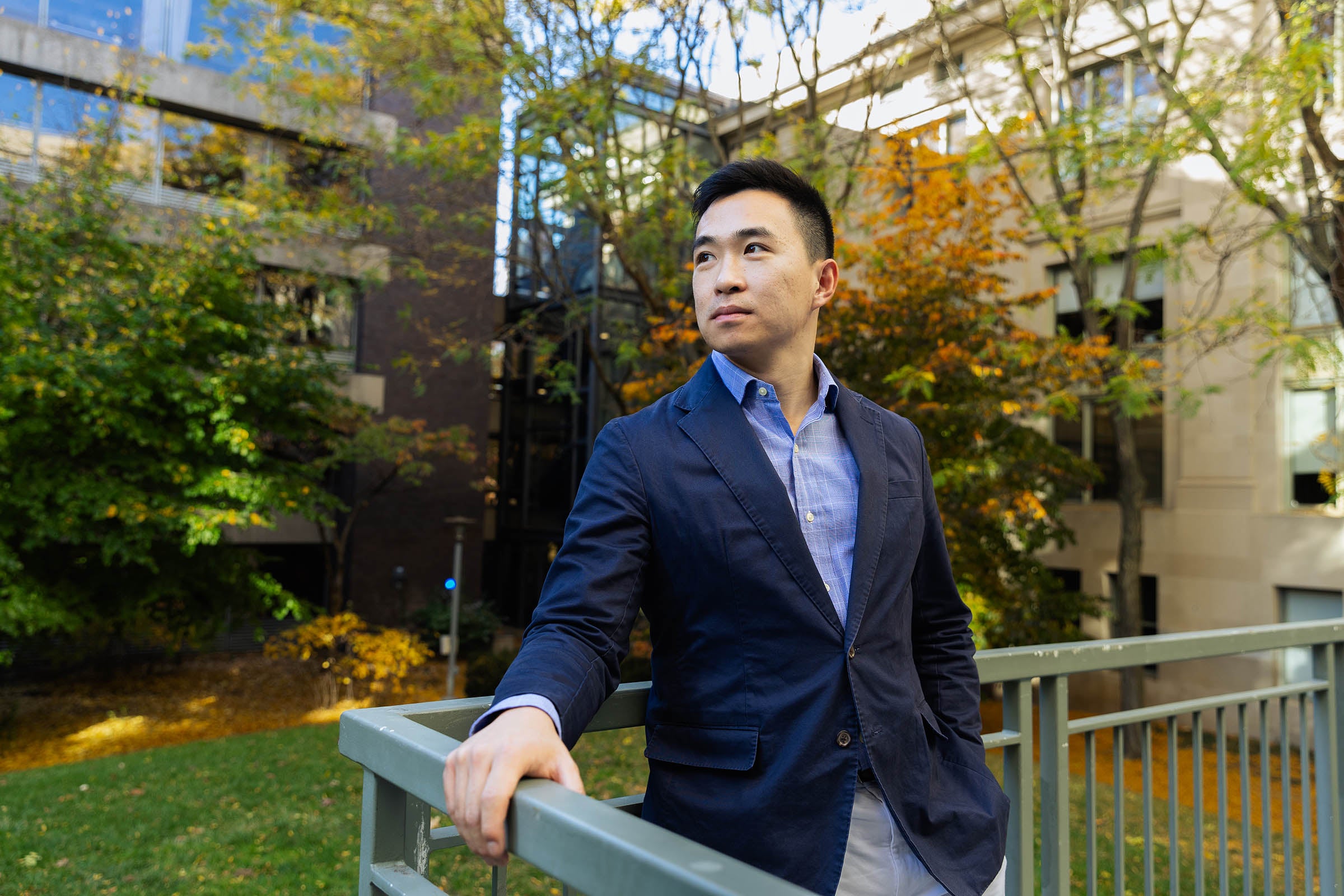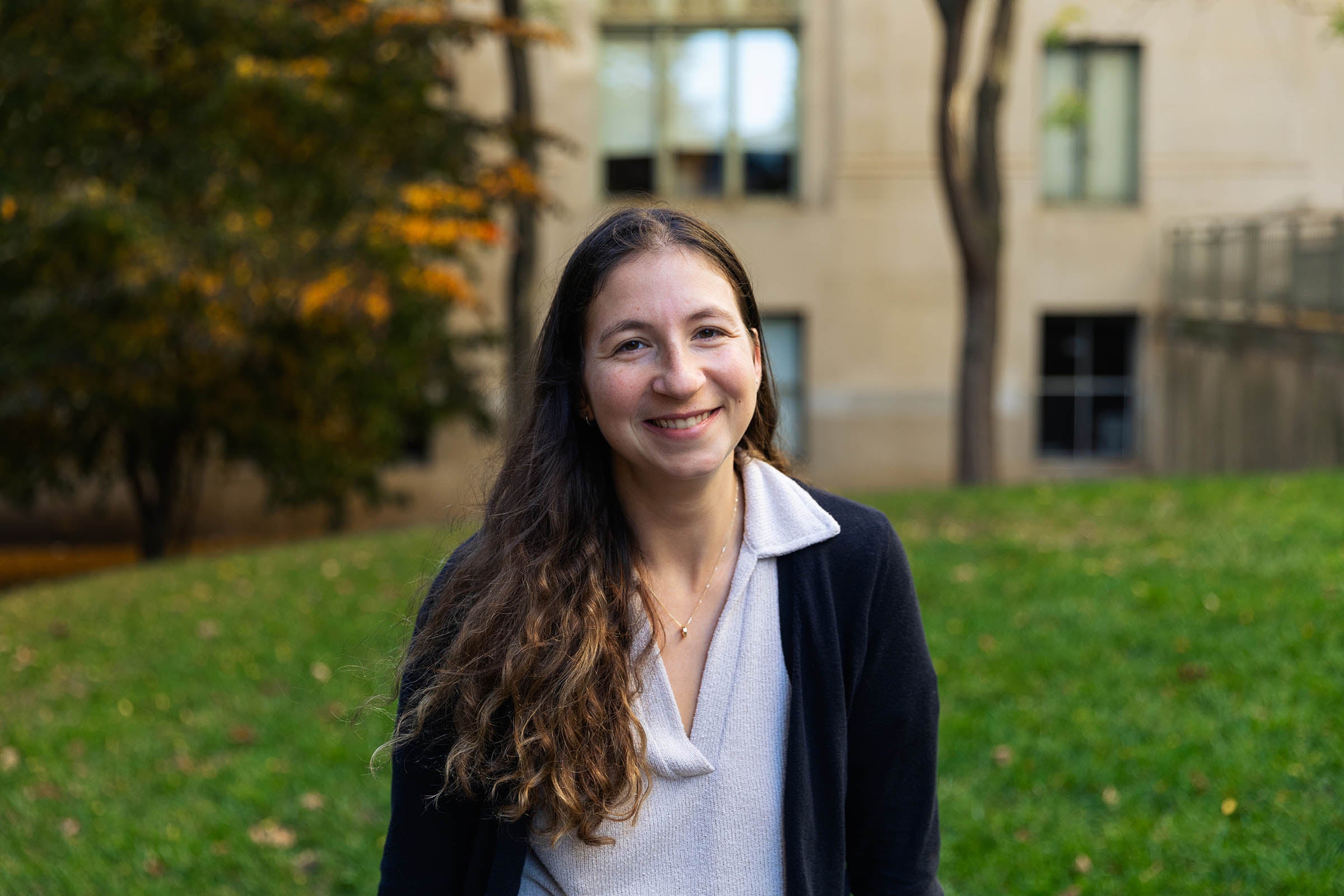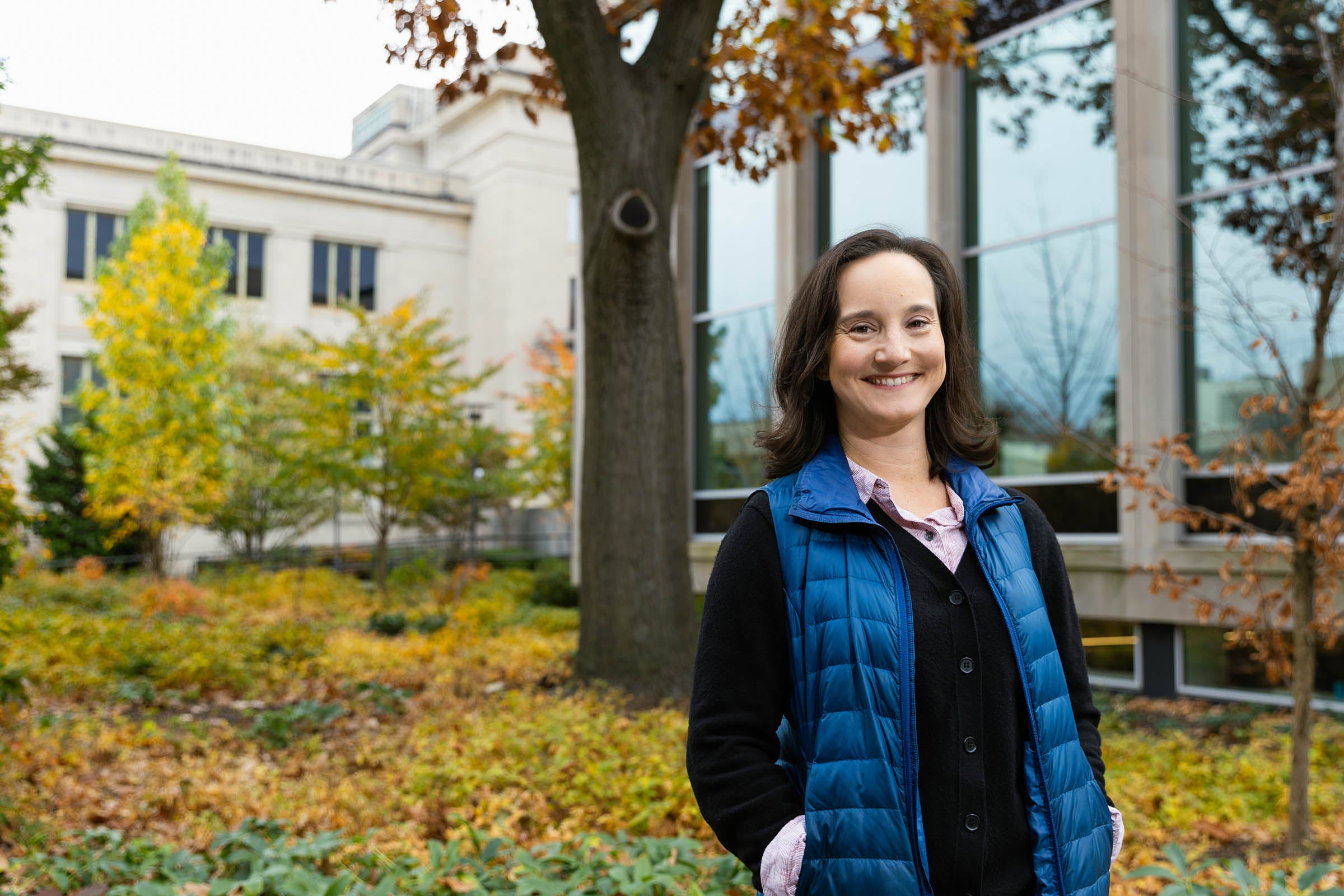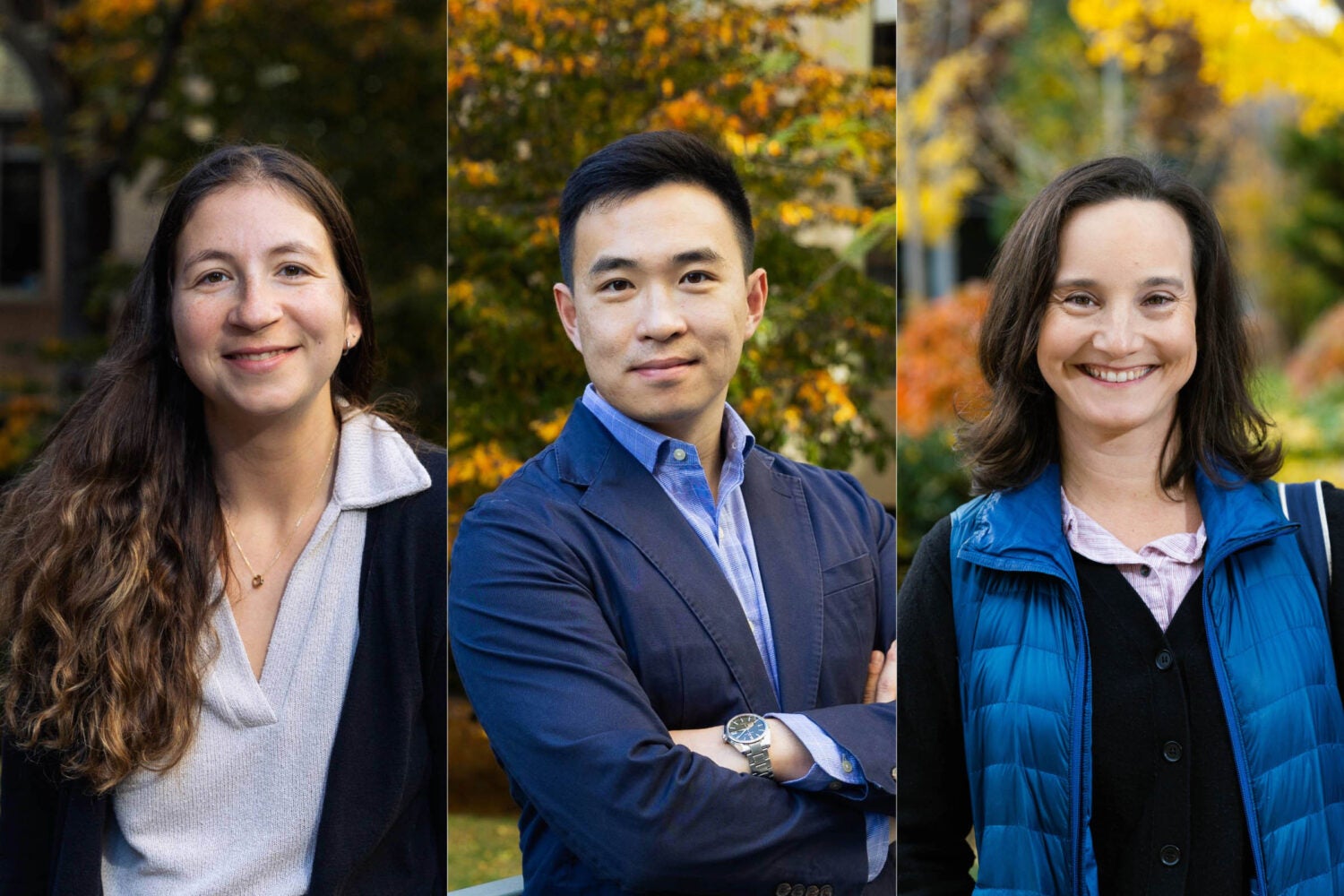As we honor veterans of military service throughout the nation, Harvard Law Today shares profiles of three student service members: Jonathan Zhangxu ’26, Lindsay Gabow ’27 and Annie Preis LL.M. ’25.
Jonathan Zhangxu ’26

From earliest childhood in China, Jonathan Zhangxu ’26 was taught by the government that religion of any sort was nothing more than superstition. In Xinjiang, an autonomous northwest region where he grew up, the large Muslim population of Uyghurs were persecuted by the government. Christianity was only tolerated in government-sanctioned churches. Those who worshipped in “underground” churches faced serious sanctions.
So Zhangxu was “quite shocked,” he said, when his best friend in middle school revealed that he and his mother were Christians. Zhangxu got hold of a Bible, planning to persuade his friend it was nonsense. Instead, as they debated religious faith, “I came to see the power of Christianity”.
Under Zhangxu’s influence, both of his parents also became Christians. His mother was baptized in a government-sanctioned church, his father in an underground church. Zhangxu wasn’t baptized in China at all, believing it was too dangerous. Plainclothes police lived in their building to keep tabs on them, media was controlled, and there were severe limits on internet access to try to squelch government opposition. His friend’s mother was sent to a forced-labor camp after she attempted to send photos of nearby camps to a Christian friend in Southern China.
Fortunately for Zhangxu, his pastor had connections with Gordon College, a private Christian college in Wenham, Massachusetts. With his parents’ support, Zhangxu left China in 2013 and enrolled in Gordon at age 17. “My English was horrible,” but “going to a Christian college was so amazing. People were so kind,” he said. “They helped me ease into American society.”
Lindsay Gabow ’27

For understandable reasons, Lindsay Gabow ’27 won’t share many details about her seven years serving as a military intelligence officer in the U.S. Army, which included six months in Qatar working in counterterrorism.
But she will tell you what inspired her to join the military and then to enroll in law school, where she’s planning a career protecting core American values, including free speech. She cites as motivation the terrorist attacks of Sept. 11, 2001.
Though she was just 7 years old, Gabow was irrevocably changed by that day.
“My town, like many surrounding New York City, was quite affected. I had peers who lost fathers that day,” said Gabow, who grew up in Pelham, N.Y. “I was too young to really understand what happened or to understand the concept of terrorism but old enough to have this sense there was something evil in the world and that it could harm my fellow citizens, maybe even my loved ones directly.”
She felt drawn to serving her country, and though she’d had little exposure to the military, she applied to the U.S. Military Academy at West Point for her undergraduate studies and was admitted. “I realized I was very privileged to grow up in the household I did, to always feel safe and loved, and I felt I had an obligation to pay that forward,” she explained. “I have never wavered from my patriotism and never wavered from the belief [our country was] trying to do good.”
Annie Preis LL.M. ’25

Given her background, Ann “Annie” Vodhanel Preis LL.M. ’25 may have seemed an unlikely candidate to become a U.S. Navy JAG officer, a role she’s taking a break from this year to study national security law in the LL.M. program at Harvard Law School.
Born and raised in Los Angeles, Preis was a child actor who did voiceovers in commercials and movies. Her parents were Vietnam War protesters. Her mom is an artist, and her dad, a civil rights lawyer and renowned activist for people with mental illness and disabilities, wore flip-flops even in court.
“My upbringing,” said Preis, “was very hippy dippy.”
When it came time for college, Preis chose Princeton because her family wasn’t wealthy and Princeton was one of a few top-tier schools that offered grants instead of loans at that time. She majored in religion. Philosopher and activist Cornel West was her adviser for her thesis, which was on the Palestinian liberation theology of Naim Stifan Ateek. Preis minored in theater and performed in a number of productions, including some experimental pieces that were “out there,” she said, laughing. “I like to live on the edge.”
With her eye on a career in international development, she moved to Thailand after college for almost three years, first teaching English, then working at the Aceh Peace Resource Center on a government project reintegrating civil war ex-combatants into society, and finally designing and implementing communications workshops for women leaders in conflict-affected regions, as a Princeton in Asia Carrie Gordon Fellow.
Wanting to continue in international affairs, she enrolled at NYU Law School. That’s when her life took a major shift.
Want to stay up to date with Harvard Law Today? Sign up for our weekly newsletter.
